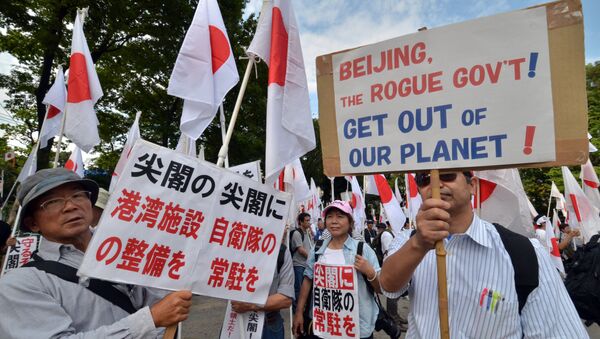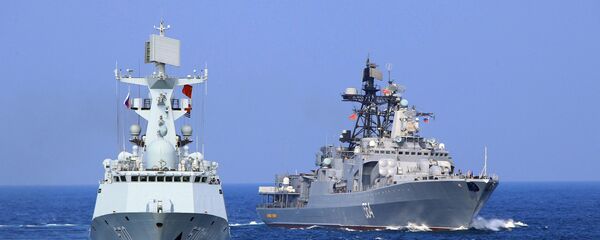According to the poll’s results, which were published on the organization’s official website on September 13, 42 percent of Japanese respondents mistrust the Chinese, with the sentiment being reciprocated by 53 percent of their Chinese counterparts. It should be noted that only 11 percent of Japanese and 14 percent of Chinese respondents stated that they trusted each other.
Furthermore, 77 percent of Chinese respondents believe that Japan is insincere in its repentance for the war crimes committed by Tokyo during the 1930s and 1940s in China, while only 10 percent of respondents deemed Japan’s apologies satisfactory. At the same time, about half of the Japanese respondents said that their country had apologized enough, 23 percent argued that further repentance is required, and 17 percent of respondents declared that their country has nothing to apologize for.
Senior researcher at the Russian Academy of Sciences (RAN) Center for Japanese Studies, Victor Pavlyatenko, told Sputnik that many Asian nations bear grudges against each other due to the past history, which is mired in frequent conflicts and mutual mistrust.
"Of course, wars were fought on all continents, but while Russians and Europeans don’t bear significant grudges, people in the East possess a different mentality and tend to remember grievances for a long time. During the post-war decades the Japanese politicians on numerous occasions apologized for the actions of the Imperial Army’s actions in many Asian countries, but every time that the relations between Tokyo and Beijing take a turn for the worse, the Chinese are keen to remind the Japanese about the past," he explained.
In the meantime, about 80 percent of Japanese respondents and about 60 percent of Chinese respondents expressed concerns that the territorial disputes between Beijing and its neighbors may ultimately lead to an armed conflict.
While the two nations’ governments continue to profess the desire to forge closer bilateral ties, and despite close economic cooperation and intensive cultural and academic exchange programs, both Chinese and Japanese tend to be reluctant to let go of the negative stereotypes of the past.
"The biggest risk factor in Asia today is a conflict between the economy and security. The volume of trade between China and Japan exceeds $300 billion, which is a pretty hefty sum, to put it mildly. Therefore, I believe that both nations are perfectly aware of the fact that the disputed islands aren’t worth starting a fight, as losses would be far greater than potential gains," Pavlyatenko remarked.
It should also be noted that according to another Pew Research Center poll conducted in 2015, 91 percent of Philippine respondents, 83 percent of Vietnamese respondents and 78 percent of South Korean respondents expressed concerns that China’s territorial claims in the South China Sea may result in an armed conflict.



